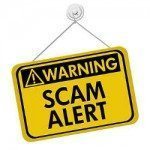]]>
You notice a missed call on your phone from an unfamiliar number and decide to find out who it was. What you don’t realise is that your return call is being diverted to a premium service for which you’ll be charged.
This is just one of many phone scams catching consumers out, and just one of thousands of scams costing Australians millions of dollars each year.
In another popular phone scam, a text message is received from an unknown number with a message that seems like it could be from a friend. If you reply, you could end up engaged in a message exchange for which you’ll be charged a premium rate – both for the messages sent and received.
Earlier this year the Australian Competition and Consumer Commission (ACCC) conducted a Fraud Fortnight campaign which aimed to raise awareness of consumer scams like these.
While many scams come to us bearing all the signs of being a fraudulent activity, there are many which still fool even the more cautious consumers.
Used car scams
Late last year the ACCC issued a warning to car buyers about fake used car advertisements appearing on automotive websites and online classifieds in Australia.
The advertisements are usually a copy of a genuine seller’s advertisement, with only the price and contact details changed. The price is usually well below market value with a claim that it is an “urgent” sale. This urgency is usually what leads to unsuspecting buyers making a commitment before they’ve even seen the car.
There are steps a consumer can take to help protect themselves against fraudulent activity and used car scams. When buying from a private seller, the RAC recommends that you check that the make, model and engine number detailed on the registration papers match the car. You should also check whether the car has been written off or stolen at any stage by calling the Department for Planning and Infrastructure. These simple checks could identify potential problems before the purchase has been made.
The RAC also advises private car buyers, when checking vehicles, to call the Register of Encumbered Vehicles (REVs) to find out if the car has any finance owing.
The ACCC continues to encourage anyone exposed to a consumer scam to report it immediately. They also advise consumers to treat unsolicited offers with caution and to always independently check offers that seem “too good to be true”.







